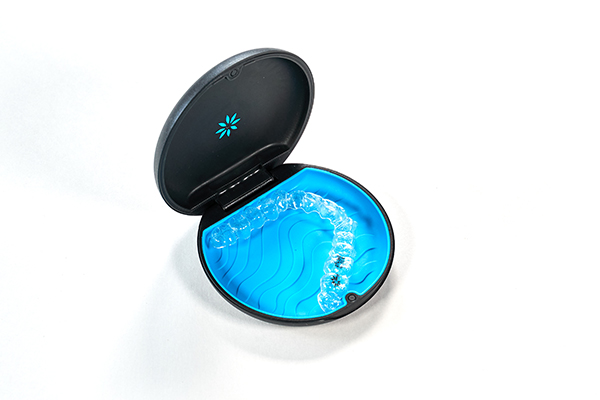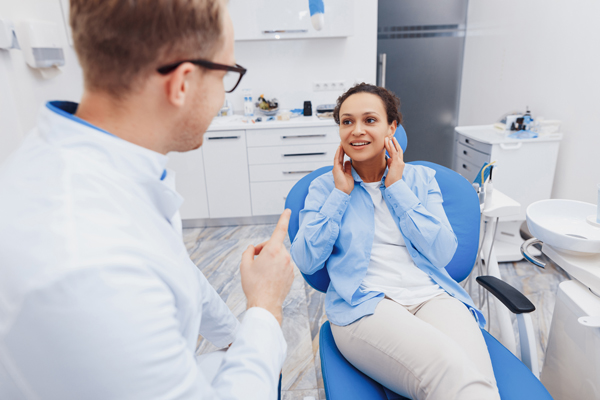Post Invisalign Therapy Maintenance

Invisalign® is a breakthrough and discreet orthodontic procedure that allows you to have straighter teeth. This article shares some suggestions for preserving your smile following Invisalign treatment. Invisalign utilizes a set of clear aligner trays to progressively shift the position of the teeth and improve the smile over time. It is important to properly care for the teeth to preserve the results of the Invisalign treatment.
Maintenance routine after Invisalign
The following are tips to follow after completing Invisalign treatment:
Wear the retainers
The teeth are progressively moved by the gentle force provided by the Invisalign aligners throughout treatment. This pressure causes the jawbone and ligaments that support the teeth to alter over time, straightening the teeth. After Invisalign treatment is completed and the aligners have completed their job, patients will need to wear a retainer to keep the teeth in their new positions.
The length of time to wear a retainer depends on the individual's situation. After treatment, retainers are usually required to be worn day and night for a brief length of time. Most individuals will eventually wear their retainer just at night to keep their teeth in place. It is essential to wear a retainer as instructed; otherwise, the teeth may move back to their previous locations.
Practice good oral hygiene
Good oral hygiene after Invisalign treatment is necessary to keep the smile looking beautiful. Brushing and flossing regularly may help to stop the occurrence of tooth decay, gum disease, and other oral health issues, ensuring excellent dental function and an appealing smile.
Patients should clean their teeth at least twice a day, ideally after breakfast and before going to bed. It is advisable to brush for at least two minutes, ensuring that the toothbrush reaches all teeth surfaces.
Flossing should be done at least once a day. When flossing, be sure to sweep the floss up and down each side of each tooth several times. The floss should be used to clean every accessible area of the gum line, as well.
Use a mouthguard during sports
Oral trauma may result in tooth loss or damage. While it is impossible to safeguard the teeth from every unexpected incident, some measures may be taken while engaging in physical activities with a high risk of oral trauma, such as contact sports and skateboarding.
Wearing a mouthguard is the most efficient method to protect the teeth. Mouthguards may be purchased over the counter or custom-made by a dentist.
Consume healthier foods
A diet rich in fruits, vegetables, lean meats, and low-fat dairy may help the body receive the vitamins and minerals it needs and which are crucial for dental health. Avoiding or reducing sugary meals and beverages, in addition to consuming nutritious foods, is an excellent approach to decrease the chances of dental decay and gum disease.
The bottom line
Following Invisalign treatment, regular exams and cleanings are essential for keeping a healthy, attractive smile. Oral health issues may be detected and treated early with regular exams and cleanings. It may also help to prevent several problems from occurring, such as gum disease and tooth decay.
Request an appointment here: https://gkdentaloffice.com or call GK Dental PC at (617) 826-6075 for an appointment in our Everett office.
Check out what others are saying about our dental services on Yelp: Invisalign in Everett, MA.
Recent Posts
More patients than ever are choosing clear aligners over metal braces. The Invisalign® website cites that over 10 million patients have used this treatment. Clear aligners can transform a patient's smile by straightening teeth and correcting jaw misalignment. Many patients are candidates for this type of treatment, and patients of all ages can enjoy the…
For those seeking a straighter smile, Invisalign® is a popular and effective choice for dental patients of various ages. Using clear aligner trays, this system provides a more discreet treatment option, often with less discomfort and in less time than traditional braces. Straightening crooked teeth can result in a host of helpful benefits:Improved appearanceFewer headachesReduced…
For patients in need of orthodontic care for a variety of issues, such as tooth gaps, crooked teeth or misaligned bites, both Invisalign® and traditional braces are potential treatment options. While many people seek a straight answer to which one of these alternatives is ideal, there are several factors that determine which route is better…
Does Invisalign really work? This treatment is often marketed as a more convenient alternative to braces, but some patients are concerned about its effectiveness. Invisalign® may sound too good to be true — patients do not have to worry about avoiding certain foods that may become stuck in traditional braces.Like traditional braces, Invisalign® is designed…


